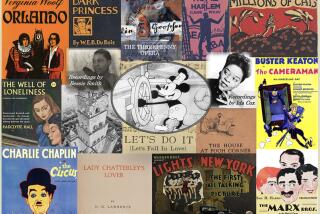FIRST OFF . . .
- Share via
The Senate had approved legislation paving the way for the United States to join a century-old agreement that grants global copyrights to literary and artistic works. The bill would change U.S. copyright law, paving the way for Senate consent to ratification of the 76-nation treaty, signed in Bern, Switzerland, on Sept. 9, 1886. Ratification, which has been sought by groups including the Motion Picture Assn. of America, will come on a separate vote. The chief dispute over the legislation involved how best to protect what are known as “moral rights”--the authority of a writer or artist to guard the integrity of his work against what he thinks are damaging changes or misuse. American copyright law doesn’t cover moral rights. The Bern Convention requires signing nations to protect in law the right of an artist to ensure the integrity of his work. However, that protection doesn’t have to be part of copyright law. The bill approved 89-0 on Wednesday sidesteps that issue, providing that neither the measure nor adherence to the Bern Convention expands or contracts a copyright holder’s rights to object to any change in a protected work. A similar bill was passed by the House of Representatives in May, but because the Senate bill is slightly different, the House must approve the Senate’s bill as well.
More to Read
The biggest entertainment stories
Get our big stories about Hollywood, film, television, music, arts, culture and more right in your inbox as soon as they publish.
You may occasionally receive promotional content from the Los Angeles Times.










